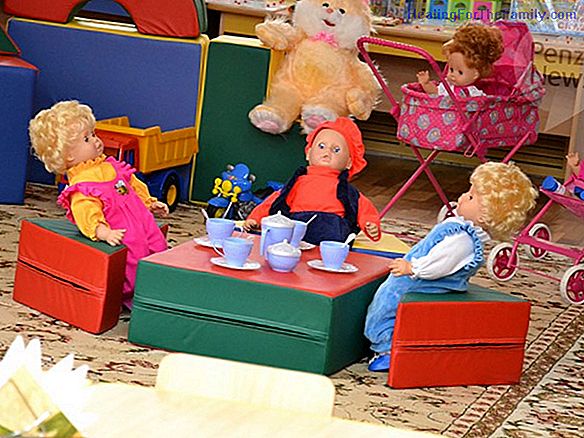Children who are hungry at all times
There will be many parents who are familiar with a situation very common among young children: fresh out of the table and after they have finished their meal, they start playing and Ten minutes have not passed when we listen, I'm hungry! What do we do? Is it convenient to give him food? And what do
There will be many parents who are familiar with a situation very common among young children: fresh out of the table and after they have finished their meal, they start playing and Ten minutes have not passed when we listen, I'm hungry! What do we do? Is it convenient to give him food? And what do I give? This is the case of children who are hungry at all times.
When children are hungry at all hours

Curiously, children of this age, between 2 and 5 years old, go through a stage in which they begin to detect the different sensations of their body, but find it difficult to understand them and all, define them. Normally, hunger is one of the first they identify, so the "I'm hungry" use it for everything.
While this is completely normal, and should not be cause for alarm, so is the fact that, if you do not see what the real reason for the child's "hunger" is, it can get used to fighting boredom, or sadness with food, and this can be dangerous.
Emotional pecking is something very common among adults, and it is a not-quite-normal habit, as it leads to an unnecessary consumption of food, a food known as "comfort food". Observing and understanding the emotions of our children can help us determine if the child is really hungry or is trying to convey another sensation that he is not yet able to understand. Talking with them and teaching them to understand these emotions and to solve them without the help of food is our job as parents, so that this habit does not settle among their customs. But how can you keep it from pecking at all hours?
When the child uses this phrase, it may be helpful to divert attention from the food. We can try to ask him what he has been doing, if he wants to play something else, or if he wants us to sit down together and read a story. If any of these approaches manages to divert attention from the snack, it is very likely that the child is not hungry, so we can continue to investigate to find out what is the reason for their demand for food. Little by little it is likely that the child himself will be able to tell us what happens to him without the need to go through emotional pecking.
It also helps to have habits that allow you to be flexible with what you eat, how?
- Do not use the rule of finishing the meal of the dish.
- Use small portions of food, and let him ask for more when he wants.
- Encourage chewing and eating slowly, reinforcing your own rhythms. Una - A routine and some
relatively fixed meal times can help in making sure that the child is not hungry between meals. -
Five meals work better than three at an early age, as children feel more comfortable with small frequent portions and distract for a short time than with large dishes that last them forever.












